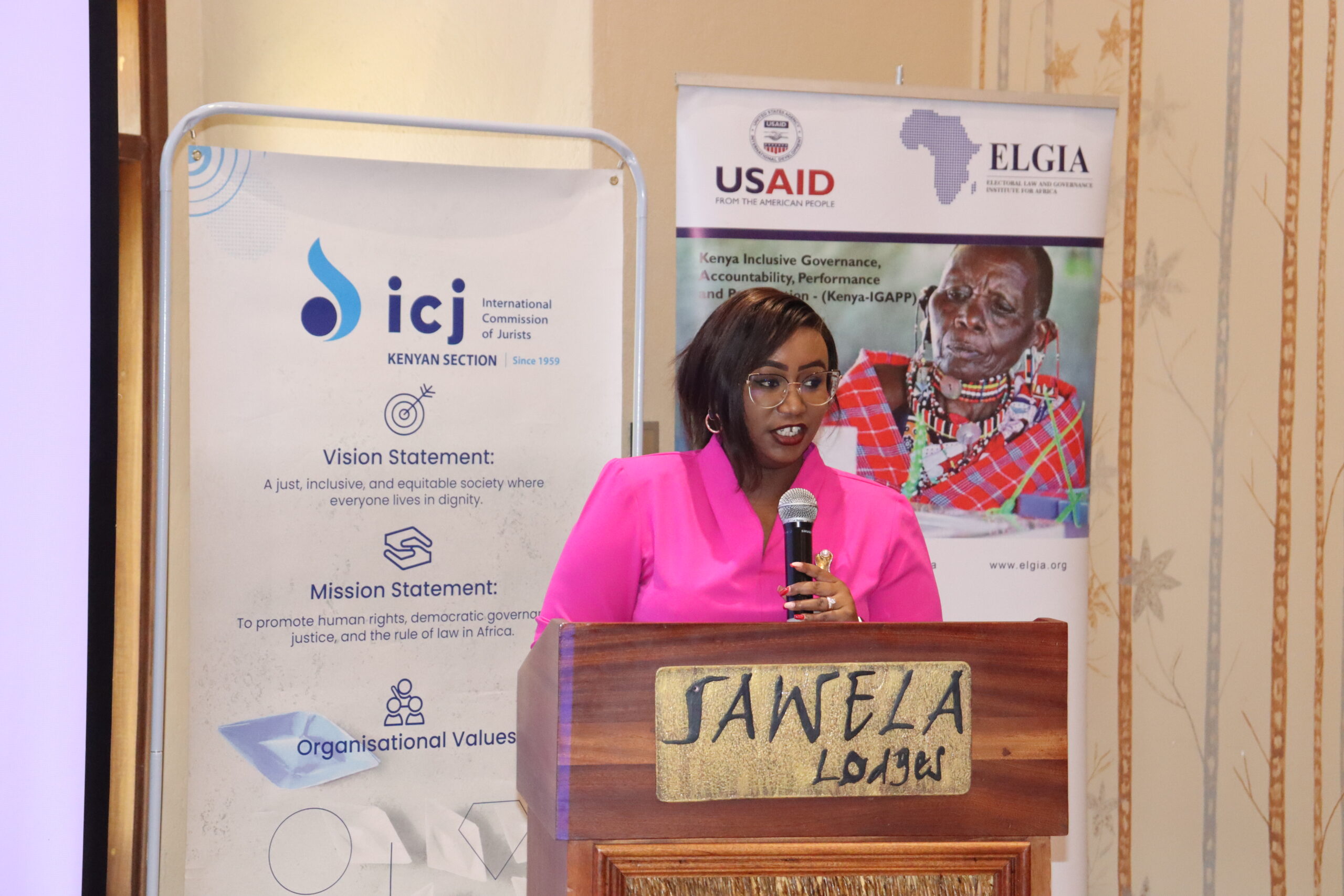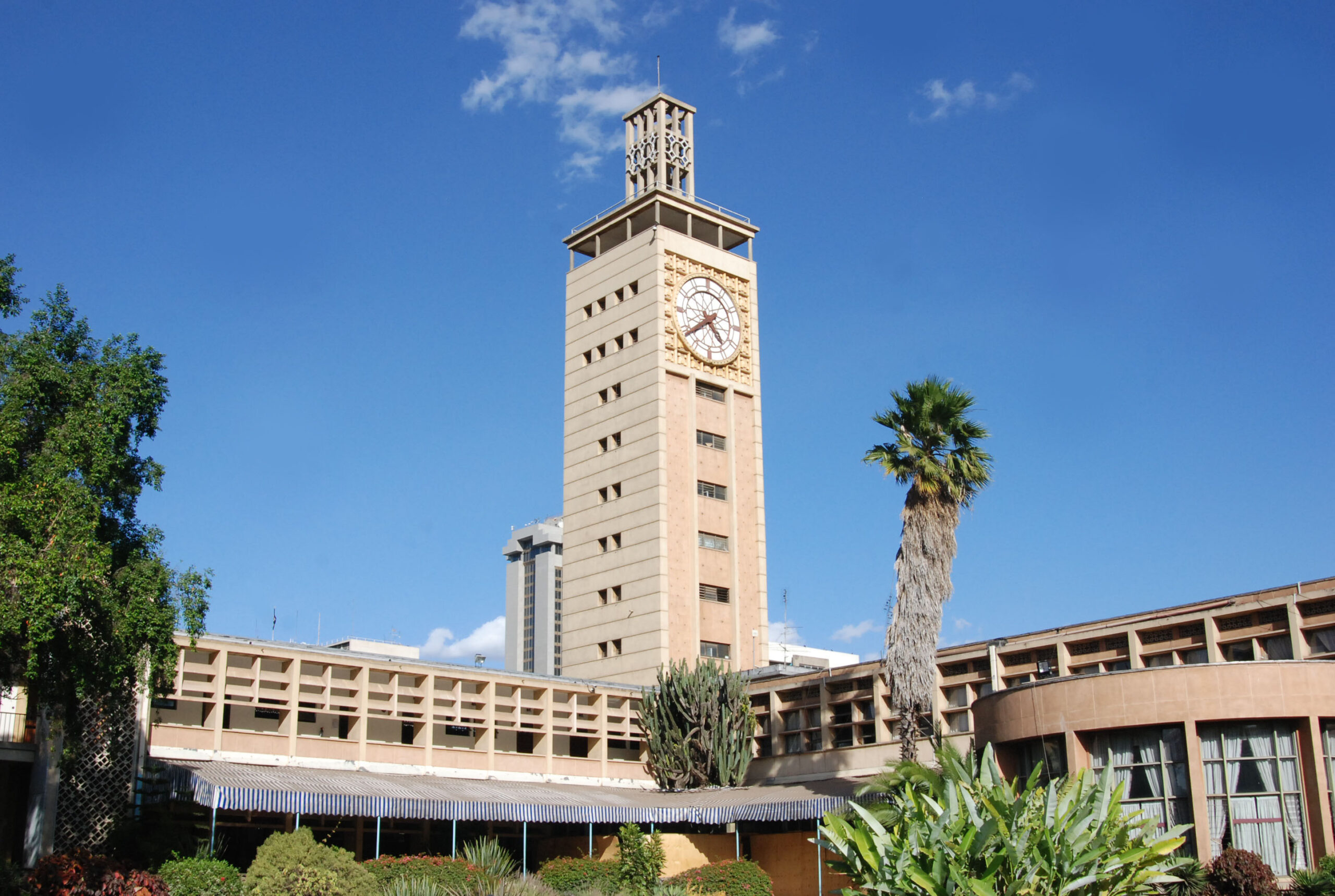NAKURU, Kenya – ICJ Kenya is participating in the Election Dispute Resolution (EDR) debrief for gazetted magistrates to hear election offences. The workshop, has brought together esteemed members of the bench and other judicial sector stakeholders in what has become an integral avenue to assess,review and strengthen laws around election dispute resolution.
ICJ Kenya Programme Manager Julie Wayua Matheka officially got proceedings underway, hailing the convergence of magistrates as an integral meeting that would enable them to reflect on the vital roles they played in ensuring the integrity and fairness of Kenya’s democratic process during the 2022 electoral process.
“As Judicial officers, you are the guardians of our democratic ideals, entrusted with the crucial task of resolving disputes that arise during the electoral process. The challenges you face are substantial, requiring a delicate balance between upholding the sanctity of the electoral system and ensuring the protection of citizens’ rights.” said Wayua.
This year’s theme of the Debrief and learning session reiterating on, “Election Disputes Resolution,” underscores the significance of the magistrates’ responsibilities in upholding the principles of justice, transparency, and the rule of law.
“Your commitment to these principles is commendable, and it is our collective duty to recognize and appreciate the significant contributions each one of you has made,”
The recent elections undoubtedly posed unique challenges, testing the resilience and impartiality of our judicial system.
Magistrates’ role in mediating election disputes and addressing election offences has been pivotal in maintaining public trust and confidence in the democratic process.
“The decisions you make carry far-reaching consequences, influencing the very foundation of our democratic society,” noted Wayua who further said,”The decisions they made are said to have far-reaching consequences, influencing the very foundation of our democratic society.”
It is essential to acknowledge the complexities involved in election dispute resolution in Kenya, especially when dealing with offenses that threaten the fabric of our electoral system.
The debriefing provides an opportunity for participants to learn from the experiences of one another and share insights and best practices, and to collectively strengthen the capacity for future challenges.
“It is an occasion for introspection,collaboration, and the cultivation of a culture of continuous improvement within our judicial system,”
Kenya has had frequent elections since independence. However, the electoral framework did not correspond with enhanced democracy or constitutionalism.
Elections were considered the focal point of constitutional regression and attracted significant changes between 1964 and 1992. These changes were largely considered to have contributed to systemic state failure, which triggered the 2007 post-election violence.
Kenya’s 2010 Constitution and the statutory reforms following constitutional enactment, therefore, sought to comprehensively reform the electoral framework.








